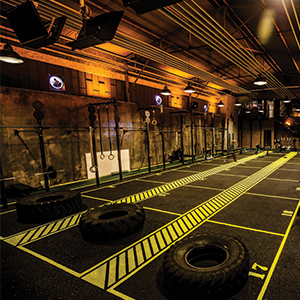
Share
The Psychology of Grip: Unlocking Excellence in Sports Performance
In the pursuit of athletic excellence, every detail matters. From the way a sprinter positions their feet to the mindset of a climber scaling a cliff, small adjustments often separate victory from defeat. One factor stands out as deceptively simple yet profoundly influential: grip.
Grip isn’t just a physical connection - it’s a psychological anchor. Whether you’re clutching a barbell, gripping a tennis racket, or holding onto a rock face, the sense of control starts with your hands. A secure grip signals confidence to the brain, fostering focus, stability, and determination.
The Mind-Body Connection in Grip
At their core, grip strength and control act as a bridge between the mind and body. When your hands feel secure, your mind is freer to concentrate on strategy, technique, and execution. Conversely, a slipping grip triggers a primal response: fear. Fear of dropping, failing, or losing control. This physiological reaction - heightened heart rate, tensed muscles, and distraction - can derail performance in an instant.
That’s where tools like chalk come into play. Chalk doesn’t just improve friction; it reduces the mental load of uncertainty. Athletes who chalk up their hands engage in a preparation ritual, calming their nerves while ensuring their physical readiness. In that moment, gripping becomes a statement of intent: I am ready to perform.
Grip as a Symbol of Confidence
A firm grip isn’t merely about strength; it’s about control. In sports like powerlifting, rock climbing, gymnastics, or CrossFit, grip often represents the threshold between attempting and achieving. Athletes with a secure grip project confidence - not only to themselves but to their audience. A solid grip says, “I’ve got this,” even before making the first move.
This psychology extends beyond physical sports. In fencing, for example, grip subtly conveys intention and strategy. In golf, the balance between a firm and relaxed grip can mean the difference between a birdie and a bunker shot. Across disciplines, the mastery of grip is a microcosm of the mental and physical precision required for excellence.
The Evolution of Grip Support: Chalk Reinvented
Historically, grip has relied on raw strength and simple tools - ropes, handles, or textured surfaces. Yet, innovation continues to elevate performance. Chalk, once associated with messy gym bags and powdered clouds, has transformed. Products like Clean Chalk represent this evolution, delivering precision and portability while addressing practical concerns like mess and waste.
These innovations are not just about convenience but about unlocking psychological flow. When athletes trust their grip, thanks to tools that perform consistently, they enter a state of peak focus. This flow state, often called “in the zone,” is where excellence is achieved.
Why Grip Matters in the Pursuit of Greatness
The psychology of grip goes beyond hands. It’s a metaphor for control, preparation, and mastery. A firm, steady grip represents an athlete’s readiness to rise to the challenge. It’s the first point of contact with their environment and the foundation upon which every movement is built.
So, the next time you chalk up with Super Grip Chalk, think about what you’re gripping: confidence, potential, and the edge needed to perform at your absolute best.
